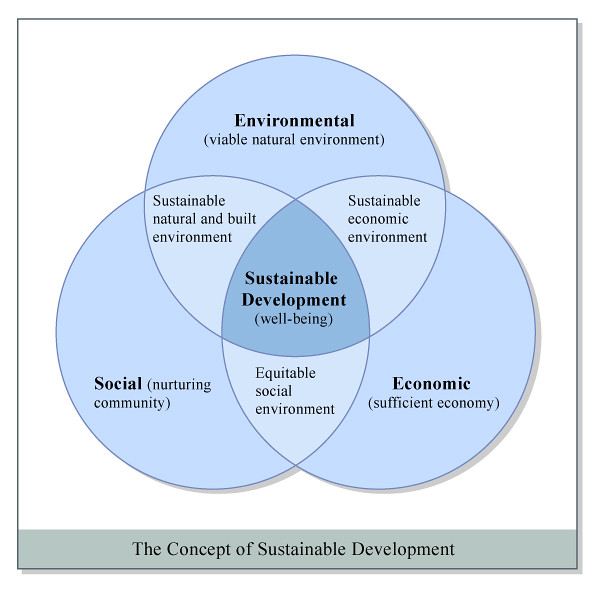Introduction:
In today’s increasingly eco-conscious world, the importance of recycling and sustainable solutions cannot be overstated. One area where recycling plays a vital role is in the process of scrap car removal. Every day, countless vehicles reach the end of their useful lives, leaving car owners with the decision of how to dispose of their discarded vehicles responsibly. This article explores the indispensable role of recycling in scrap car removal and highlights its significance as an efficient and environmentally-friendly solution. By considering the benefits of recycling through expert service providers like Top Cash For Cars, car owners can contribute to a more sustainable future while also reaping substantial financial gains.
Table of Contents
- 1. Recycling as a Key Component of Sustainable Scrap Car Removal: Understanding the Environmental Impact
- 2. Maximizing the Benefits of Recycling: Best Practices for Efficient Scrap Car Management
- 3. Promoting Circular Economy: Advocating for Legislation and Industry Collaboration in Scrap Car Recycling
- 4. Sustainable End-of-Life Vehicle Management: Expert Recommendations for Effective Recycling Processes
- The Way Forward

1. Recycling as a Key Component of Sustainable Scrap Car Removal: Understanding the Environmental Impact
Recycling plays a vital role in scrap car removal, serving as a key component of sustainable and environmentally-conscious practices. Understanding the environmental impact of recycling is crucial in embracing the importance of this process and its contribution to a greener future. By diverting scrap cars from landfills and channeling them through recycling programs, we can significantly reduce the negative effects on the environment and promote the efficient use of resources.
One of the primary environmental benefits of recycling scrap cars is the reduction of greenhouse gas emissions. By recycling the various components of a car, such as metals, plastics, and fluids, we can minimize the need for new raw materials and the energy-intensive processes associated with their extraction. Additionally, recycling helps to conserve valuable resources and limits the harmful environmental impacts associated with extracting and refining new materials. This includes reducing the destruction of natural habitats, deforestation, and water pollution caused by mining and extraction activities.

2. Maximizing the Benefits of Recycling: Best Practices for Efficient Scrap Car Management
When it comes to scrap car removal, recycling plays a vital role in providing a sustainable solution. Not only does it help alleviate the environmental burden caused by abandoned vehicles, but it also presents opportunities to maximize the benefits of recycling. Implementing best practices for efficient scrap car management can significantly contribute to a greener and cleaner future.
It starts with proper dismantling and removal techniques. Utilizing trained professionals who can extract valuable parts and materials from scrap cars ensures that nothing goes to waste. Components such as batteries, engines, and tires can be recycled and repurposed, minimizing the need for new production and reducing the strain on natural resources. Additionally, the responsible disposal of hazardous substances found in vehicles, such as oils and fluids, is crucial to protect the environment from potential contamination.
- Promote public awareness: Education and outreach programs can inform the public about the importance of scrap car recycling, encouraging individuals to responsibly dispose of their vehicles.
- Strengthen recycling infrastructure: Investing in advanced recycling facilities enables the efficient processing of scrap cars, including the recovery of valuable metals and materials.
- Facilitate cooperation: Collaborating with auto manufacturers, government agencies, and recycling organizations can establish effective partnerships to streamline the scrap car recycling process.

3. Promoting Circular Economy: Advocating for Legislation and Industry Collaboration in Scrap Car Recycling
Recycling plays an essential role in the sustainable removal of scrap cars, providing a powerful solution to the environmental and economic challenges associated with end-of-life vehicles. As the automotive industry continues to grow, so does the need for effective recycling measures to minimize the impact on our planet. Through legislation and industry collaboration, the promotion of circular economy principles in scrap car recycling has become crucial in shaping a greener and more sustainable future.
Advocating for legislation that supports proper recycling practices is pivotal in achieving environmental goals and ensuring responsible disposal of scrap cars. Legitimate frameworks can encourage businesses to adopt sustainable practices by imposing stricter regulations and providing incentives for recycling. These laws can address crucial aspects such as mandatory recycling targets, the responsible treatment of hazardous materials, and the promotion of technologies that enhance recycling efficiency. By supporting these efforts, governments and policymakers provide the necessary guidance to steer the automotive industry towards greener practices and a more circular economy.
Collaboration between industry stakeholders is equally essential in advancing scrap car recycling. Automakers, recyclers, and relevant associations need to work together to develop innovative recycling technologies and establish efficient collection and dismantling systems. The sharing of best practices and knowledge can enhance the effectiveness of recycling processes, leading to increased recycling rates and the recovery of valuable resources. Industry collaborations could involve the establishment of recycling networks, the development of standardized recycling procedures, and the creation of certification programs for eco-friendly dismantling facilities. By fostering collaboration, the industry can chart a path towards a more sustainable future for scrap car removal.

4. Sustainable End-of-Life Vehicle Management: Expert Recommendations for Effective Recycling Processes
As society increasingly focuses on sustainability, effective recycling processes for end-of-life vehicles (ELVs) have become more important than ever. With millions of cars reaching the end of their life cycle each year, the need for proper and sustainable scrap car removal is evident. Expert recommendations play a vital role in guiding the industry towards effective recycling processes that minimize environmental impact and maximize resource recovery.
One of the key recommendations put forth by experts is the utilization of advanced recycling technologies. These innovative processes enable the extraction and purification of valuable materials from ELVs, such as steel, aluminum, and plastic. By adopting cutting-edge techniques, the recycling industry can reduce reliance on mining raw materials, effectively conserving natural resources. Additionally, the use of advanced recycling technologies helps to lower greenhouse gas emissions and energy consumption associated with traditional mining and manufacturing. Incorporating these techniques in the recycling of end-of-life vehicles ensures a sustainable approach to managing scrap car removal.
- Comprehensive dismantling: A crucial aspect of sustainable ELV management involves the careful dismantling of vehicles. This allows for the identification and removal of hazardous materials, ensuring they are properly handled and disposed of.
- Proper fluid drainage: Prior to recycling, ELVs undergo a draining process to remove fluids such as oil, coolant, and gasoline. These harmful substances are then safely collected and treated to prevent contamination.
- Component recovery: Valuable parts and components, such as engines, transmissions, and electronic systems, are recovered during the recycling process. These salvaged components can be refurbished and reused, reducing the demand for new parts and extending the lifespan of other vehicles.
- Safe disposal of scrap: Once all reusable components have been extracted, the remaining scrap is carefully sorted and processed. Metals, plastics, and other materials are then sent to their respective recycling streams, promoting efficient resource recovery.
The Way Forward
In conclusion, understanding the vital role of recycling in scrap car removal is pivotal in embracing a sustainable solution for our environment. By opting for eco-friendly disposal methods and partnering with reputable recycling centers, we can significantly reduce the negative impact of abandoned vehicles on our planet. At Top Cash For Cars, we recognize the importance of responsible car disposal and offer a convenient and lucrative solution for our valued customers. Whether you have a scrap car or simply wish to contribute towards a greener future, we encourage you to take action today. Request a quote by filling out our straightforward “Request a Quote” form on our website or give us a call directly. Together, let’s make a positive impact on our environment, one car at a time.
